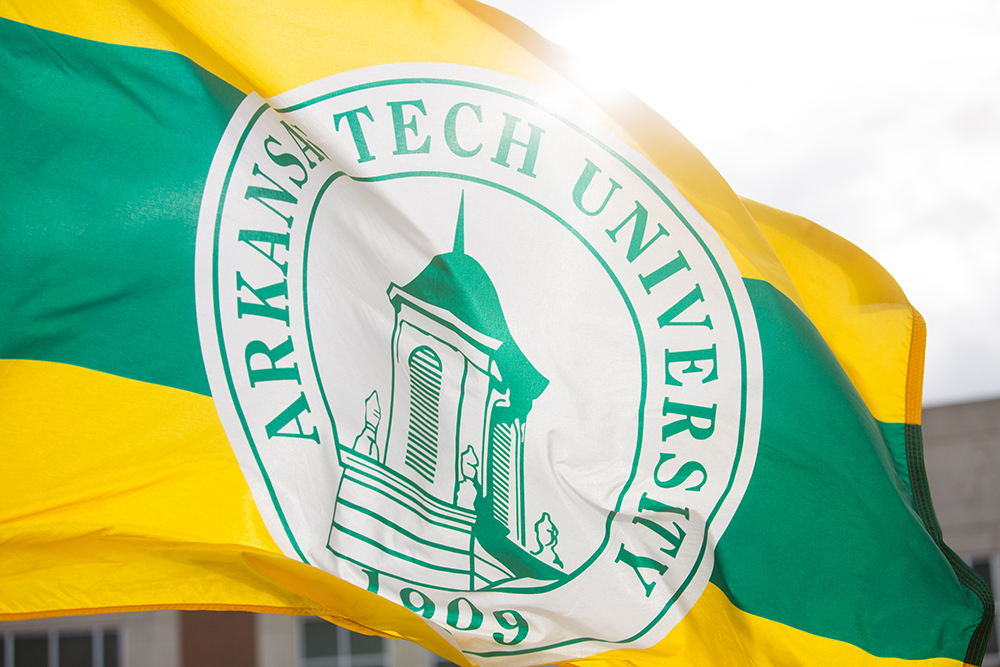As year one of the Arkansas Tech Institute (ATI) career coaching pilot program unfolds, the individuals chosen to carry out the initiative on a day-to-day basis are becoming witnesses to what is possible when short-term academic goals are connected with long-term career aspirations.
“I have a student whom I taught in eighth grade that has never been a great test taker and could not get to the ACT score needed due to anxiety and other learning barriers,” said Hannah Edgell, who is serving as a career coach at Russellville High School. “We were able to pull him in to test by himself with the Accuplacer, and he passed to get scholarships and out of remedial courses. It was fantastic.”
Helping students enroll in the right classes for their aptitudes and interests. Connecting students with post-secondary financial aid resources so they can continue their education. Creating work-based learning opportunities that lead directly to job attainment.
These are the types of stories that are coming back from the field as career coaches in the school districts at Russellville, Clarksville, Ozark, Johnson County Westside and Mulberry/Pleasant View implement the vision laid out in the Ready for Life grant provided by then-Gov. Asa Hutchinson and grants from the Arkansas Department of Education Division of Career and Technical Education (ADE CTE).
The 2022-23 academic year is the first of a two-year pilot program, which is being overseen by ATU-Ozark Campus under the auspices of the Arkansas Tech Institute, a non-formula entity of Arkansas Tech University. The career coaches who are funded through the ADE CTE grant are employed by Guy Fenter Educational Cooperative. ATU, Guy Fenter and the participating school districts work in partnership to lead and support the work of the career and technical education career coaches.
“My work as a career coach helps students build self-knowledge, plan for careers and prepare financially for the future,” said Melanie Dean, a career coach in Ozark. “I have worked with several first-generation college students. For these students, I am able to decode college and help them be prepared as possible. One, in particular, did not meet the admission requirements for college. The student hit a rough patch during the pandemic resulting in a low grade point average despite a good ACT score and improving grades. We worked through an admissions appeal process and the student was admitted to college. It felt like such a huge win.”
Dean has exposed younger students to a variety of post-secondary options, including manufacturing, military branches and college tours.
“The career coaching program matters to me because our mission/vision is ‘Together…Developing Leaders One Student at a Time…Every Time’ and the career coaching model is an amazing opportunity to offer every student on our campus a personalized plan to achieve success,” said Dr. Lonnie Myers, superintendent for the Mulberry/Pleasant View School District. “It exemplifies our vision of finding success for every single student, one student at a time.”
Dr. Sheila Jacobs, ATU-Ozark chief academic officer, explained the ATI approach to career coaching is aligned with the “Building a Regional Workforce Advantage” executive report the Russellville Area Chamber of Commerce and the Russellville Regional Workforce Development Cabinet have utilized in planning for the future needs of the region.
“The mission of the career coaching program is to assist students with comprehensive career development planning by developing strong partnerships with public schools and local industry and community leaders in order to connect students to career and educational opportunities,” said Jacobs, who is chief facilitator for the ATI career coaching program. “This is about sustainable economic development that focuses on an organized and cohesive method of regional and state workforce infrastructure development. Arkansas Tech University is uniquely positioned to advance a synchronous workforce education training system through its Russellville campus, its Ozark campus and Arkansas Tech Career Center as well as its numerous K-12 partners.”
Other goals of the ATI career coaching program include increased work-based learning experiences for students and increased communication about career pathways that exist in their home region.
“We need to be seen as a viable career option for graduating students,” said Greg Dawson, human resources business partner at ABB. “A career coach can become familiar with local options and help guide a graduating student toward a successful career and life. For example, here at ABB, we offer an outstanding career option, excellent pay, health benefits, an amazing retirement plan and ample opportunity to progress to higher career levels. Many students have no idea what type of college education they might be interested in, but once they become involved in manufacturing they can see and experience paths that may interest them: engineering, maintenance, programming, supply chain, quality, management, safety, human resources, etc. Career coaches are a major force to help our students be aware of these choices.”






